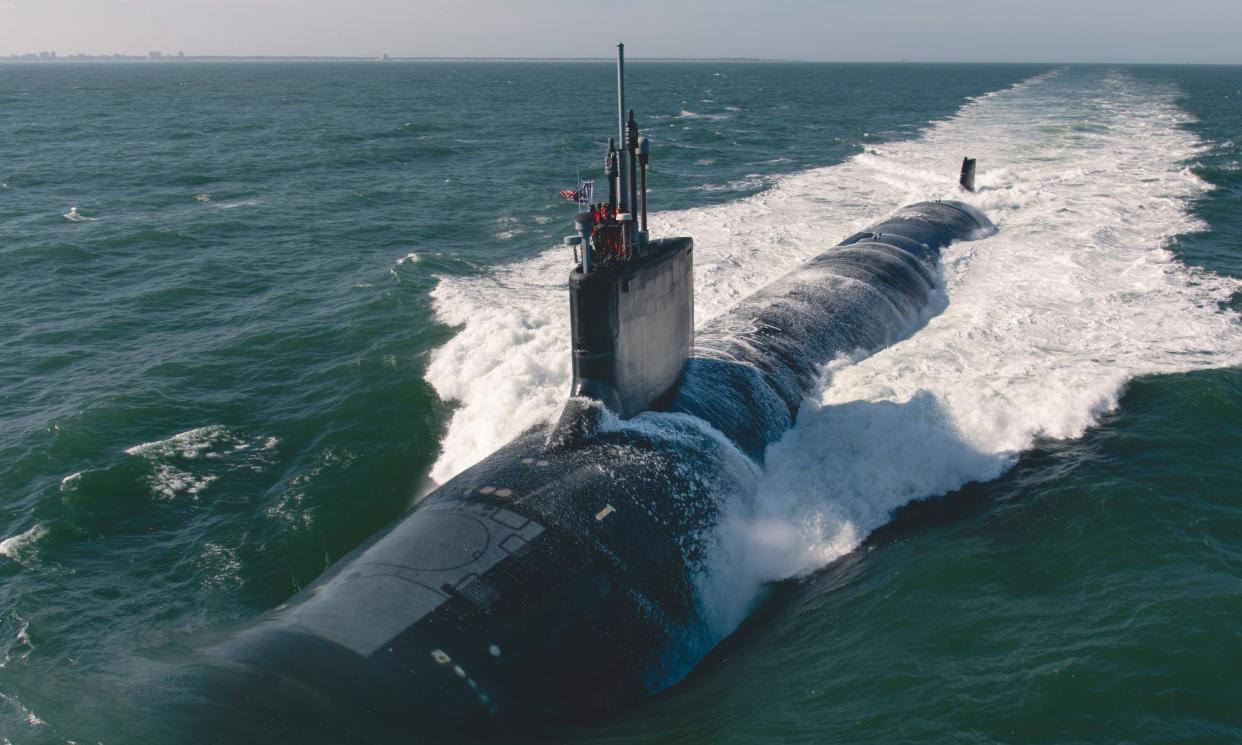US Congress passes bill allowing sale of Aukus nuclear submarines to Australia

The US congress has passed legislation allowing the country to sell Virginia class submarines to Australia under the Aukus security pact.
Sweeping legislation covering a wide range of military priorities including Aukus passed the US House of Representatives on Thursday Washington time, a day after it cleared the Senate.
The development will be warmly welcomed by the Australian government, which had hoped to secure the legislative tick before the US entered the politically charged environment of a presidential election year.
The 2024 National Defense Authorization Act (NDAA) includes provisions to allow the US to sell Virginia class nuclear-powered submarines to Australia – expected to occur in the 2030s.
The acquisition of at least three such submarines from the US is an interim step before Australian-built nuclear-powered submarines start to enter into service in the 2040s.
However, the transfer would still require certification from the president of the day.
The NDAA – which must next go to the president, Joe Biden, to sign into law – also contains other measures to free up the sharing of advanced defence technology among the US, Australia and the UK.
The Australian minister for defence industry, Pat Conroy, had earlier welcomed the passage of the legislation through the Senate with a strong 87-13 vote. Conroy said it was “a momentous day in the alliance with the United States”.
Speaking during a visit to Washington DC, Conroy said Aukus was “all about increasing and growing the industrial base of all three countries, expanding the capability of Australia to defend itself and contribute to stability and deterrence in the Indo-Pacific”.
“Many people were very sceptical that the US system would come behind so quickly and strongly and have been proven wrong,” Conroy told ABC Radio.
Biden had told the prime minster, Anthony Albanese, at the White House in October that he was confident of securing congressional support for Aukus, saying the question was “not if, but when”.
But Biden also cautioned the visiting prime minister that there were no guarantees in politics.
The Aukus security partnership, first announced in 2021, will see the three countries increasingly collaborate on defence capabilities including artificial intelligence, hypersonics and undersea warfare.
Senate majority leader Chuck Schumer said the Aukus agreement was “a game changer”.
“It will create a new fleet of nuclear-powered submarines to counter the Chinese Communist Party’s threat and influence in the Pacific,” Schumer said on Wednesday.
Tim Kaine, a Democratic senator and member of the Senate Armed Services Committee, said both Aukus and Nato were “critical to our national security and economic growth”.
Some in US congress had previously raised fears that the transfer of Virginia class submarines to Australia could jeopardise the US’s own needs, given that its shipyards were already struggling to meet existing demand.
Aukus has bipartisan support in Australia, but some critics have raised concerns that it risks locking Canberra into joining the US in a potential future conflict with China.
Former prime ministers Paul Keating and Malcolm Turnbull have both argued the plan increases Australia’s dependence on the US and therefore reduces its strategic autonomy.
The Australian government has repeatedly emphasised that it will have sovereign control of the submarines. The defence minister, Richard Marles, said in March that the Aukus deal did not include any pre-commitments to the US over a Taiwan-related conflict.
The Australian government has been seeking to “stabilise” the relationship with China, the country’s largest trading partner, over the past year and a half. Beijing has repeatedly criticised the Aukus pact.


